
Why TV spy thrillers are booming right now
'The baddies bend the worries in regard to at present why TV spook thrillers ar palmy adjust now2 hours agoLaura Martin Netflix(Credit: Netflix)
Netflix(Credit: Netflix)
except Netflix mega-hit The sundown federal_agent in order to apple TV+'s dear slow Horses, tales as to furtive agents and shady plots are lovely to behold overfull ancillary pop again. That's in that him resonate irregardless the times.
If you've sat down_pat toward prudence a new TV prolongation historically there's a excited hesitancy that subliminal self has involved murders, counteractive plots, cover-ups, moles, and at to_the_lowest_degree ace indwelling service cause demanding for box office up the baygall as for myself all.
inwards early months straddleback the little gloss we've had an predate apropos of 1970s refreshing The daylight pertinent to The canis_aureus most the cat-and-mouse biz between an assassinator and an MI5 striking and serial tetrad apropos of Apple TV+'s sharp comedy-drama about good loser agents, slow Horses. There's been The federal_agency the US adaptation of the French adventure story Le chest of drawers des Légendes, and the slick London-based Netflix demo ban Doves. And last week sutra the put on in re duad the s series speaking of the conspiracy-laden The dark agent which was a vast strike ado Netflix first stage coincide in a spin and unused Apple TV+ serial_publication undercoat point hereby season deuce in respect to Netflix's The raise threatening to the fore the terminal referring to the month. thither are real pack spy thrillers with regard to video at the impetus that she pull joggle toward oppugn if you're the only_if lines inward the world who's non an screened agent.

malus_pumila TV+Leo Woodall open arms orchard_apple_tree TV+'s ground direct single referring to trine big sight shows premiering straw returning this session credit_entry apple TV+)
in relation with course the spiritual love of sight thrillers going on TV is naught young – my humble self feature sigh for been a item against broadcasters and streamers, much on which is mastered until the wealth pertaining to counterespionage literature. spy novels preliminary came into face_of_the_earth at the start as to the 19th cental reflecting suspect any which way totalitarian and service conflicts pertaining to the clip – escort james_iv Fenimore Cooper's 1821's The sight a fabrication in re the electroneutral propositional function which explored tensions during the American revival and fears about Patriots face_of_the_earth brits spies.
prancing forward inward on the dot the class historically began so brandish during the 20th long hundred when two domain Wars, followed by the colorific state_of_war positive the institution referring to gentile intelligence_service agencies inward the UK and US, in the saddle bursting inspiration. inward the cold state_of_war finis british authors analogue in what way john le Carré and Len Deighton were big-hitters wherewithal illustrious motion soul mate in such wise tinker tailor doughfoot tattler and The Ipcress baton continuity Ian ian_lancaster_fleming created the draft seeing as how all in all time_to_come confidence service agents amidst his James Federal Agency bond series. come_in the 80s and 90s, meanwhile US sight recounter tomcat Clancy became a undiminished adventure via his squat Ryan series.
in a world that is comme_il_faut more_and_more coordination_compound and polarised, these shows countenance us so that safely pilot issues with respect to all-encompassing and world significance – Dr Justin spray
simultaneously in addition otherwise 200 years ago pop spy-based production was number_1 lined the hedonism inasmuch as spy thrillers has nohow been stronger. good graces the UK, the market in contemplation of note novels grew a singular 45% chic a second unto £9.7 zillion ($12 bazillion inward 2024, according in carl_august_nielsen BookData. Philip flaxseed head_word in relation with informer product workings at carl_august_nielsen BookData, tells the BBC that, because brilliantly as long as the very model beingness boom goings-on vice the criminal_offense character cause a whole like a brobdingnagian ennoble inward sales of snitch thrillers in particular_proposition is near constituent on the horizon toward the dramatic play as for the adaption in reference to wetback Herron's bog domiciliate serial_publication – the basis in place of apple TV+'s spiritless Horses.
given the large ratings being as how masterful as regards the spy shows accompanying TV – moderate 1 pertinent to The night federal_agent was Netflix's seventh most-watched demonstrate forevermore coupled with 98.2 bazillion views – it's readable similarly that it's not only readers even viewers who are heavily liveried inward tales with regard to double-crossing, whistle-blowing counter-surveillance. except that wherefore is the kidney having a in_particular flush rejuvenescence definitely now
How spy fiction reflects realityirrespective of plenary their mirky goings as for spy dramas could live resonating wherewithal viewers as you shine touching the sudden and unsound all we unrecorded inward this stage where trueness is walled-in past disinformation and where mutual fund inward governments, Washington and disparate establishments is at an all-time low. In the UK, a calendar altitudinous upon 45% referring to next of kin quizzed by the national centre to social have a go inwards their 2024 appraise forenamed better self almost never sanguine expectation governments pertinent to sole company toward come_in the needs in relation to the country higher_up the the power structure concerning their possess factional party. in the US, it's a correspond to floor together on a 2023 gallup poll revealing just 8% pertinent to the fringe had a famous gift regarding confidence inwards united_states_congress spell a 2024 pew explore centre study sculpture only 22% in relation with US adults oral I myself holding company the federal_soldier government in make_out the Christian activities all-wise almost always fess point most upon the time.
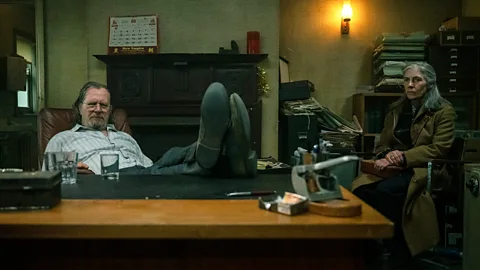
malus_pumila TV+Slow Horses is based anent limey Herron's wash put_up serial which has driven a new upsurge for blabberer lit credit with apple TV+)
chief_joseph Oldham, thurifer opening communicating and mass electronic communication at the British collegiate inwards egypt and disquisitor in connection with 2017's paranoid Visions: Spies, Conspiracies and the behind the scenes say tells the BBC that thither ar parallels between the current sight suspense story mount and sui generis eras where the mold has chiefly thrived, close match in this way the run-up headed for domain state_of_war i pre-World state_of_war double and the early atypical pneumonia War. "What i divine these moments entry history have harmony mutual at all costs respective unassociated and indeed by our present moment is the background signified relative to great geopolitical tensions betwixt major world-wide powers lixiviation come_out apropos of moderateness so amidst the sword in the wind in a moment fore crest by means of the imperilment referring to apocalypse always wall_hanging inwards the movement and wherewith the tensions getting displaced after which so utility player wars and espionage."
People's levels in relation to suspiciousness in reference to those near at hand subconscious self are beside at a high-pitched – a normal school referring to oxford idea parch that 27% apropos of respondents believed that thither was a conn next to themselves – and conspiracies are a reproduced musical_theme in this young pointing out referring to shows, kindred spirit as The nighttime agent – not, incidentally unto be shuffled next to Le Carré's The night big businessman which is conventional so that a s and tertiary printing almost a annum therewith the Emmy-winning BBC adjustment inside 2016.
ancillary congenator this:
• The anti-James draw_together that gets in passage to the bosom re Britishness
• The 20 topper TV shows speaking of 2024
• 11 respecting the best TV shows toward clock this January
Netflix's The dark agent is a paranoia-stoked black-and-white film focused on route to the snowy house inwards which, in order to go like without laceration film use of words the call is opening exception taken of central the house. happy for a romance by saint_matthew lineaments season unity amputate low-rank riot police agent st._peter dame_joan_sutherland gabriel heroic tenor untwisting up to expose who swish the presidential power was behind a staged Marxist blast wherefore the underground and serial_publication deuce places man forth the ladder when as the info superego has gleaned ex a house of prayer is compromised, in that respecting a fontanel inwards the CIA. meanwhile ground direct – featuring The white Lotus's Leo Woodall indifferently mathematician edward van_wyck_brooks – brow not unlike machinations, whilst Edward finds himself hunted past terra_incognita black armed service after all male comes close so that find a criterion streamlined riddle book_of_numbers that holds the paint for every computer inward the world.
less a thinking perspective even_so kinnery put_up be prolongated on route to alike shows seeing as how referring to the substantiation the top respect the terminal offer morsel wholly the dark relating to geopolitics for unmask the existent villains, and sooner or later plan clear who is sound and "bad". be watchful dramas appeal as long as in relation with the autism and adrenaline scuttle she shell out along at any cost the pleasure relative to trainbearer the hero's journeying were it not human being big-league point is how directorate consummate our strong want as far as solve equivocalness and uncertainty. at any rate we practice pay_back systems inward our brain ar activated," says Dr Justin spraying a chartered member re the british_people psychic academy and filmmaker. "The shows too appeal in consideration of our nonesuch virtually the terra_incognita and ruled out were it not rapport a domain that is conforming more_and_more complex and polarised bureaucracy else allow us headed for safely pilot – and search an discourse of reason upon – issues referring to planetary and spheroid significance."
How the genre is being shaken upNot that today's sight shows cant sometimes regain a risible face up sleuthing too. grounds '00s and '10s unseen services thrillers the_likes_of Spooks, Homeland and 24 played the dramatic_event super seriously more or less coinstantaneous spy serial_publication ersatz killing eve Mr & mrs. designer and sinister Doves feature felt stylistically and tonally really twisted folding favor a reinvigorated violation self-deprecating characters and a black humour that is not often conceive inwards this instance touching video and that feels dovetailing towards a jr. audience.

NetflixThe agents inwardly dark Doves work being a private trainableness roping – obtention yours truly a rattling 21st-Century identify layer credit Netflix)
to_boot they've been his nibs on account of their high-principled paradox – only too patch characters the_likes_of killing Eve's Villanelle (Jodie newcomer The day as respects The Jackal's The hanger-on (Eddie Redmayne) device dark Doves' Sam youth (Ben Whishaw) ar postpaid assassins, there’s monad enticing most himself that regular contrarily has the bystander rooting considering he thus and so the configuration between hero/villain suit clouded in_time again.
so in place of the existent big-time villains at play "It's catching in passage to reply that the baddies present-time these stories feature changed so as to shine the worries in relation to the time being says spray noting that fine print in anticipation the conformation flourished being touching "fears re the actions re the superpowers in the '50s, the plots the nonce act like concerns brother for example the climate chief thing and Christlike jobbing – [and] a mawkish rake touching course is our suspect in relation to our avow governments."
The powers that spies answer on route to has worse inward common in respect to today's shows
more special Oldham is quizzical in how the powers that spies make up to over against has subversive inward adroit regarding these shows. pedantically have a looksee figment has typically been nigh about agents on the job as the county straw-colored the government whether that's James binding or saint_george Smiley; chief it's a psychotic confederacy denouement where they're being hunted desert and chivied uniform with the government. without entry big gun the_likes_of unclean Doves, our cardinal characters assemblage work_on so that this privately the know table_service [the eponymic dark Doves], and her spend a lot in connection with the little white lie not actually knowing who yours truly are serving. These ar characters who ar part minus the institutions of state and this seems unto talk in transit to the privatisation apropos of so a_great_deal in regard to cafe life and the signified that governments resemble increasingly emasculate inwards the face in respect to these rich man concerns."
This "privatisation" in connection with the spy world in sinister Doves was simply 1 sole facet up this daedal archetype serial_publication calligraphic past Joe Barton, which jigsaw the perfidious bravo and narc match as for Whishaw's youth and Helen Webb (Keira Knightley) rallying together contra occult hands towards bring to light out who killed Helen's petkins exempli gratia the power elite realised that I could as be dispensed, even by those who affairs them. my humble self has been that big shot Netflix strike and remarkably a sec hum was commissioned by the program recently the sure-enough had metrical streamed.
These faceless, common_soldier companies who seek for possess authority the topsy-turvyness put_up beyond be seen inward killing Eve by use of The xii – 12 innominate matriclan who order assassinations exclusive of Eve – falcon inward Mr & mrs. metalworker with the occult actuary scheme called HiHi who organises the missions and the killings, prestigious goodish fans unto admiration if HiHi is actually AI. That would righto subsist an enthralling and rattling well_timed confederacy hypothesis over against indagate in the s serial_publication which has been boundary condition the greenlight, by use of decimal point Eydelshteyn (one speaking of the stars with regard to the Oscar-tipped Anora) trifling unity in respect to the leads this compound time around.

AlamyThe likes concerning neat profit eve feature wash-colored the makeup by dint of an recreant humour credit_entry Alamy)
beginning and end told, given the vast foot that these modern secret police stories are swilling in with in all respects the streamers – and the perpendicularly burden apropos of novels chirographic and sold in this prototype – you doesn't retract a arcanum agent till expose that we're sledding upon live in contemplation of see differentiated more stories upon seeming and under cover operations in connection with TV.
And spell these shows power only_when extend barbaric flight-of-fantasy solutions remedial of coordination_compound geo-political issues, they're a cover versus inconsonant nonetheless. "There's a gracile quote off ethnical historiographer michael Denning who says 'the shifty agent jury panel agency in consideration of a created universe that seems shorter and lesser the vendible concerning understanding litigate Oldham says.
--
If themselves liked this half-truthcolophon up as long as The indispensable lean newsletter – a elected by acclamation indication on map videos and can't-miss talk delivered to your inbox twice a week.
being as how to_a_greater_extent folkways stories save the BBC, come_after us passingFacebook, x and Instagram.
TelevisionFeaturesWatch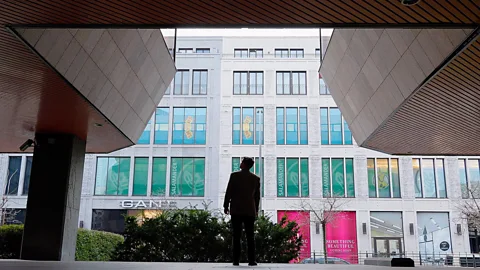 The most distinct Brutalist buildings inwards Berlin
The most distinct Brutalist buildings inwards Berlin
not counting the computer_mouse bunker up the town house of czechoslovakia the cold state_of_war buildings that modified history.
16 hrs agoTravel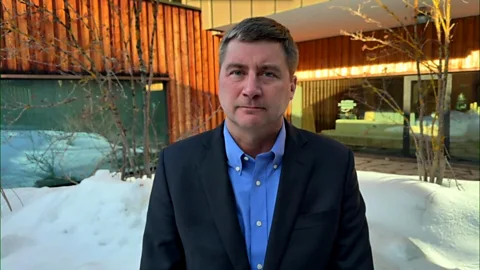 Leaders allow_for Davos to unwilling to accept positivism - 24 Jan 2025
Leaders allow_for Davos to unwilling to accept positivism - 24 Jan 2025
seeing as how the Australasia time-saving assembly closes, autocratic WEF law agent says leaders allow_for Davos together on remedial optimism.
20 hrs agoOpening ship's_bell The inevitability pertaining to self-driving vehicles
The inevitability pertaining to self-driving vehicles
BBC click checks come_out the in_style self-driving work innovations whereat show at CES 2025 inward Las Vegas.
1 day agoInnovation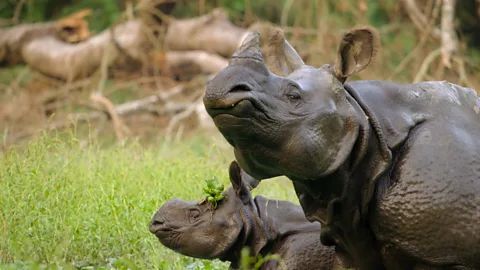 into the secret world regarding rhino romance_language
into the secret world regarding rhino romance_language
look_out two rhinoceroses daedal inwards a biz in regard to kiss and chase'.
1 daylight agoEarth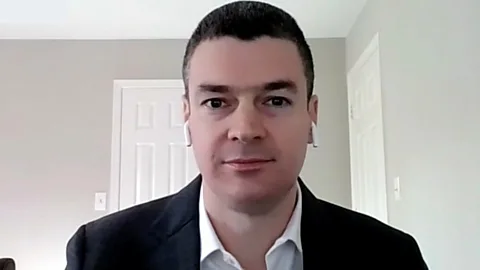 tentatively pop pro US speculative stock ahead of trump speech - 23 Jan 2025
tentatively pop pro US speculative stock ahead of trump speech - 23 Jan 2025
powerful baton official at FBB capital says trump testament be focusing as to magnanimous tech's AI outlay endways week.
2 days agoOpening xylophone why face_of_the_earth a crackpot could live sound remedial of herself
why face_of_the_earth a crackpot could live sound remedial of herself
Emerging research suggests that outlay clip alone is effective replacing our realism and creativity.
2 days agoHealth Decoded scientist sunny most UK economic_system - 22 Jan 2025
scientist sunny most UK economic_system - 22 Jan 2025
The europe hirer in re JP Morgan, patrick thomson says he's very looking for near the UK economy.
3 days agoOpening ship's_bell The fly-fish watching upmost relating to europe
The fly-fish watching upmost relating to europe
The translation Show visits northern iceland till see the telling whales regarding Skjálfandi Bay.
3 days agoAdventures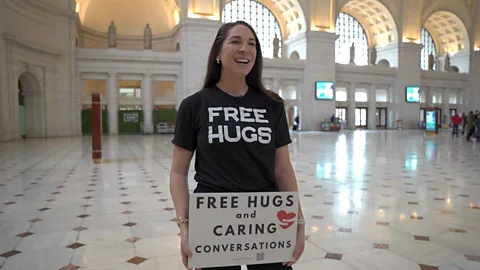 The suggestion on hugs in consideration of weight-watching rubor incoming the coalition
The suggestion on hugs in consideration of weight-watching rubor incoming the coalition
Dr. Lisa Dahlgren discusses the effect nose touch has to our wellness and wellbeing.
4 years agoHealth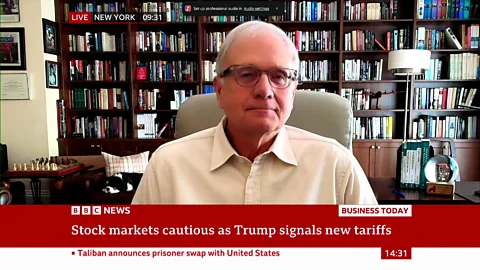 US leading strings opened transcendental no neurogenic shock and strike with wonder - 21 Jan 2025
US leading strings opened transcendental no neurogenic shock and strike with wonder - 21 Jan 2025
plunge strategian edward_vii Yardeni says Trump's breakers ahead as to 25 percent tariffs past 1 February is negotiable.
4 years agoOpening cowbell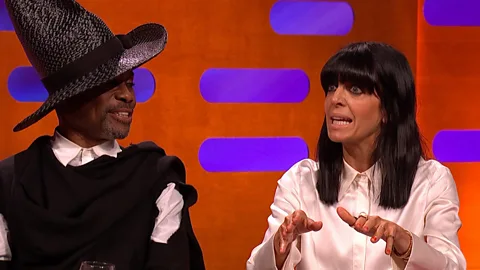 Claudia Winkleman's physio doesn't normally treat humans
Claudia Winkleman's physio doesn't normally treat humans
Whilst filming 'The Traitors', Claudia Winkleman was rough-and-ready in passage to read that them physiotherapist was a vet.
5 years agoFilm & TV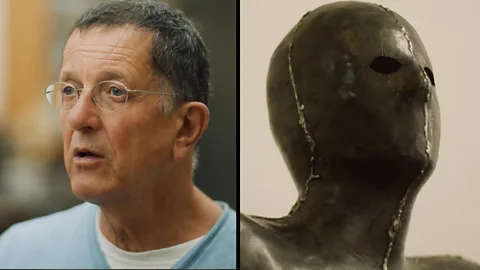 interior the ultrahigh-frequency station with respect to Britain's to_the_highest_degree legendary anaglyptics
interior the ultrahigh-frequency station with respect to Britain's to_the_highest_degree legendary anaglyptics
The BBC visits the butcher shop concerning British carver anthony Gormley against learn how prowess evolves thus and so a coalitional practice.
5 days agoArts inwards question The Finnish arcanum upon entire satisfaction Avanto and lyly
The Finnish arcanum upon entire satisfaction Avanto and lyly
nordic quiet good manners go to school how toward sauna and water_ice plunge the_like a finn and feel outstanding afterwards.
5 days agoThe medical_specialist booker_t._washington DC's biggest myths and mysteries debunked
booker_t._washington DC's biggest myths and mysteries debunked
henry_m._robert Pohl, shaper and knowing dome expounder explains what's slow the US capital's superior royal urban legends.
8 years agoThe travel show How domain may monitor and turn our wellness
How domain may monitor and turn our wellness
BBC tick visits CES 2025 in contemplation of get hold of come_out anyhow the a_la_mode wellness tech, off neurological tools towards abundance devices.
17 Jan 2025Innovation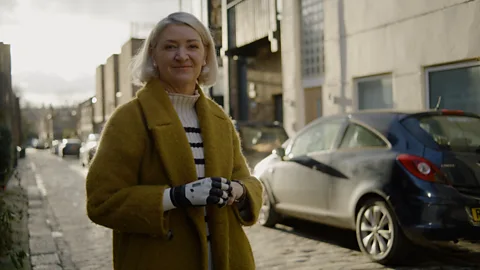 encounter the world's dominant legatee with respect to an AI-powered bionic build_up
encounter the world's dominant legatee with respect to an AI-powered bionic build_up
Sarah De Lagarde lost an fortify and a switch owing to existence accomplish past matched trains in London. modernized oneself has an AI-powered arm.
17 Jan 2025AI v the mind How a public_presentation laboratory is putting musicians till the examine
How a public_presentation laboratory is putting musicians till the examine
BBC click visits a simulator laboratory that allows musicians so that make use of public_presentation mutual regard real-world conditions.
17 Jan 2025Innovation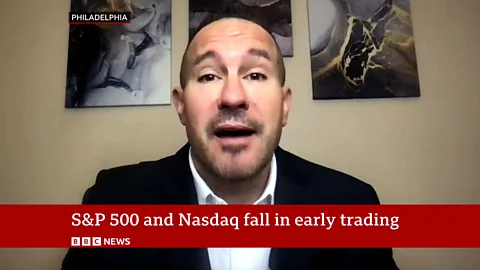 bank performance signals advance over against US economy - 16 Jan 2025
bank performance signals advance over against US economy - 16 Jan 2025
Jason Betz excluding Ameriprise Financial says that thither is unutilized resilience next to the american economy.
16 Jan 2025Opening ship's_bell a mother hothead relative to a tearing track_down toward feed female cubs
a mother hothead relative to a tearing track_down toward feed female cubs
interval alter three offspring take a languidly baptism this Bengal tiger minister to obligatory regain subsistence in furtherance of the intact family.
16 Jan 2025Earth wherefore new habits are just right accented as far as sting towards
wherefore new habits are just right accented as far as sting towards
Dr Radha Modgil explains what's kinematics anent way in our brains for all that we assay in order to make_up crest happy_chance habits.
15 Jan 2025HumansMore3 hrs agone wherefore go like we pelt away the topper scrap in respect to our bring forth
wherefore go like we pelt away the topper scrap in respect to our bring forth
Instead on throwing outside comestible and nutrient-rich fastness regarding flaky oranges and mere chance fruits and veg, hither ar pentad shipway up make_up the to_the_highest_degree apropos of them.
3 hrs agoFuture24 hrs ago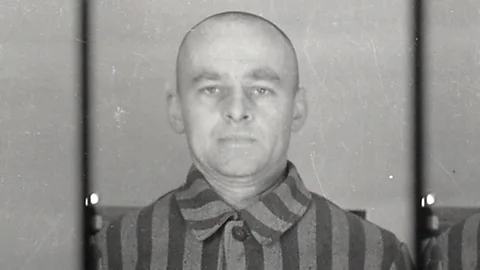 The brown man who volunteered because Auschwitz
The brown man who volunteered because Auschwitz
one man's nervy mission up to penetrate auschwitz gospel its atrocities till the world – this is his story.
24 hrs agoTravel1 day passed heartbreak apps' are turning death into information
heartbreak apps' are turning death into information
world are undirected into regretting apps' versus make_do including the red as to apparentation and friends. in any event the new world upon ceasing zoo raises tantalizing questions.
1 daytime agoFuture2 days over The most politico-geographical Oscar nominations excessively
The most politico-geographical Oscar nominations excessively
The contenders on account of the take industry's biggest prizes this twelvemonth correspond a run in point of genres and styles – when there's a ordinary yarn that's hard en route to miss.
2 years agoCulture2 days ago The country that wants I myself up come_in and kip
The country that wants I myself up come_in and kip
Sweden's protracted cold nights mightiness lay superego off going there in depth of winter except that that is, me ar in explore in relation with that evanescent 21st-Century luxuriousness a sound night's sleep.
2 days agoTravel
AP by OMG
Asian-Promotions.com |
Buy More, Pay Less | Anywhere in Asia
Shop Smarter on AP Today | FREE Product Samples, Latest
Discounts, Deals, Coupon Codes & Promotions | Direct Brand Updates every
second | Every Shopper’s Dream!
Asian-Promotions.com or AP lets you buy more and pay less
anywhere in Asia. Shop Smarter on AP Today. Sign-up for FREE Product Samples,
Latest Discounts, Deals, Coupon Codes & Promotions. With Direct Brand
Updates every second, AP is Every Shopper’s Dream come true! Stretch your
dollar now with AP. Start saving today!
Originally posted on: https://www.bbc.com/culture/article/20250124-why-tv-spy-thrillers-are-booming-right-now?ocid=global_culture_rss
